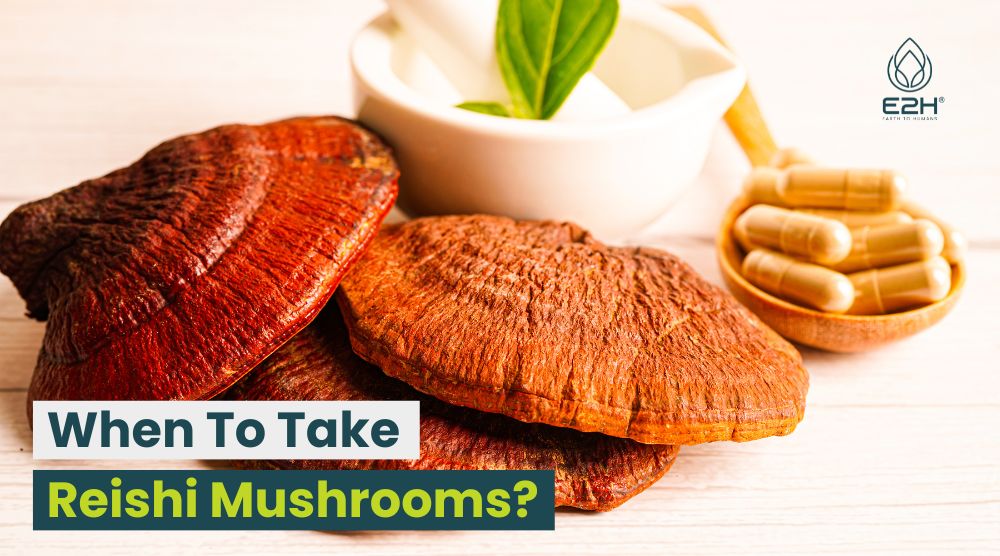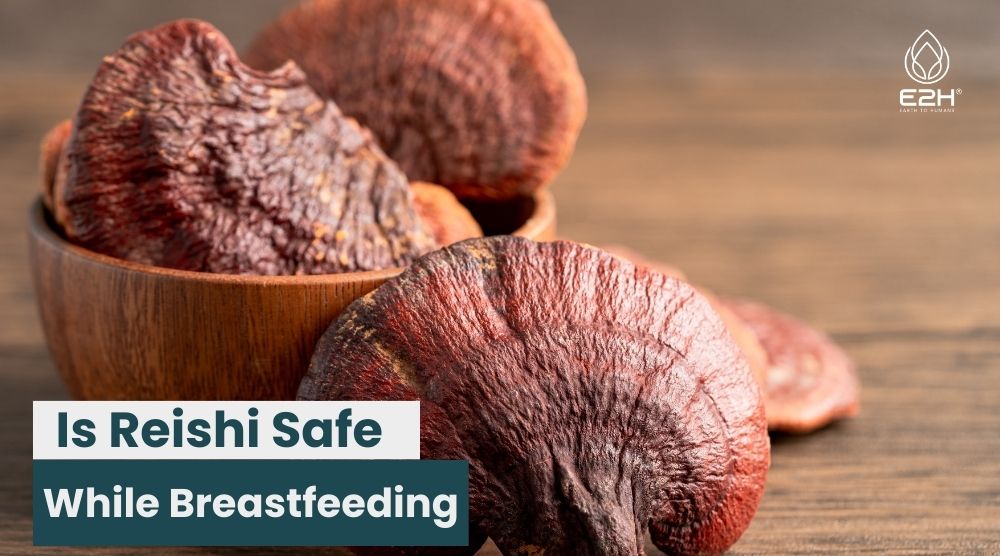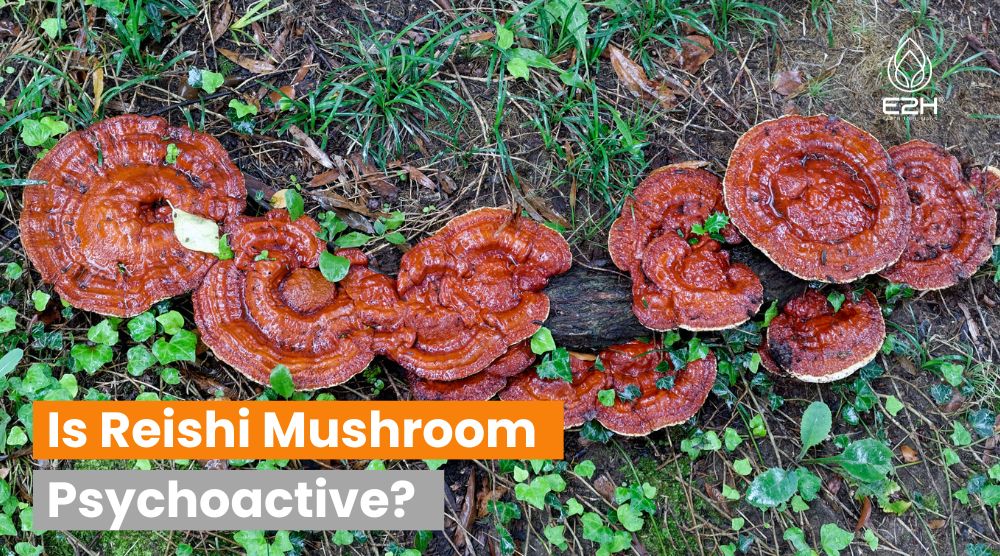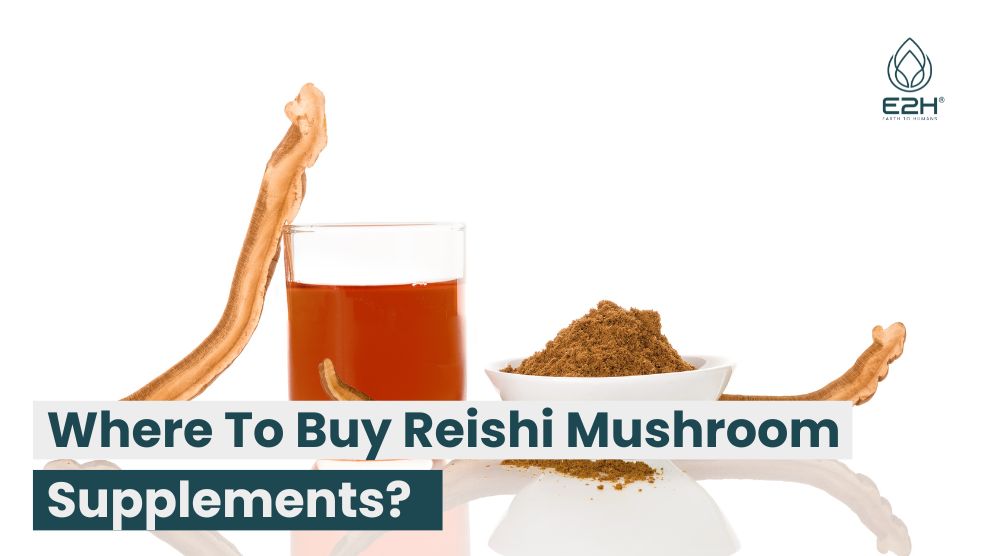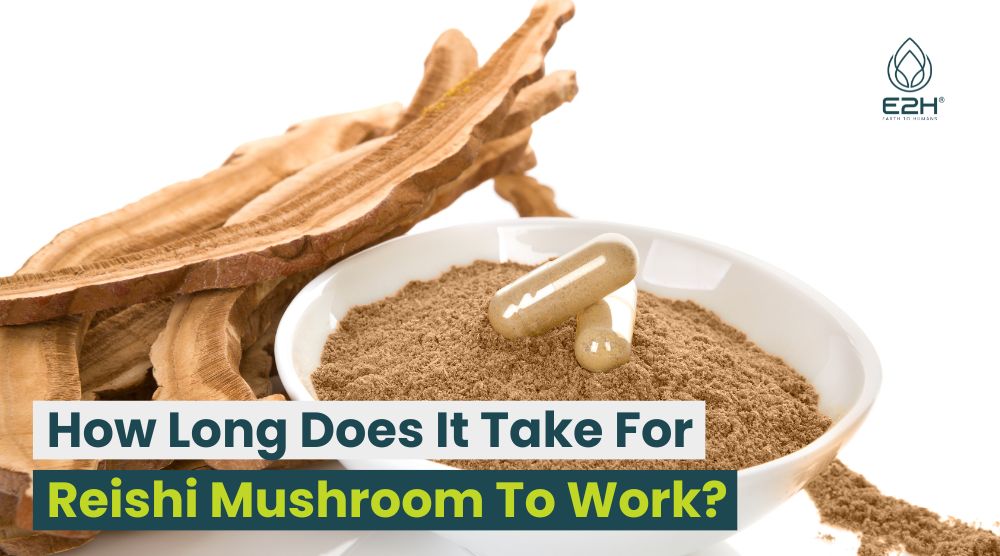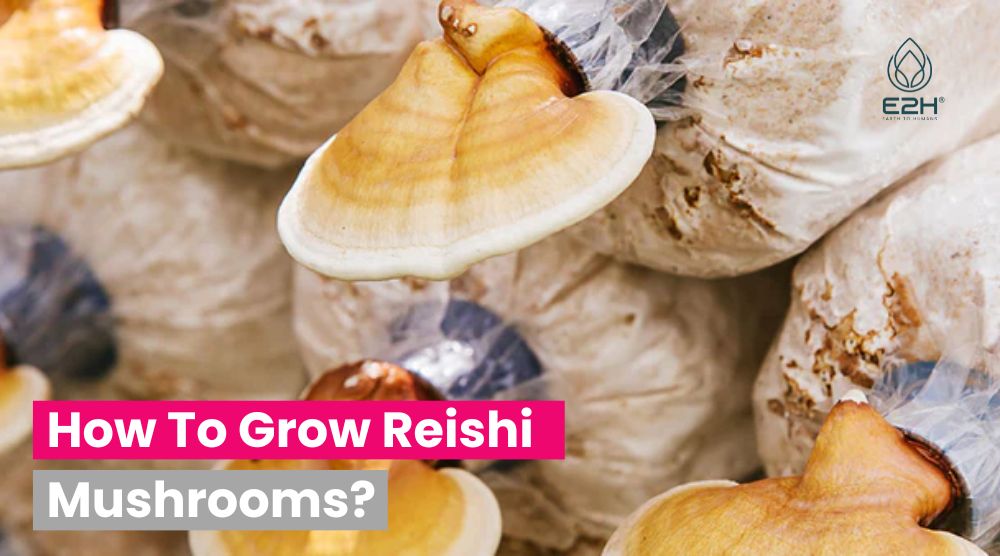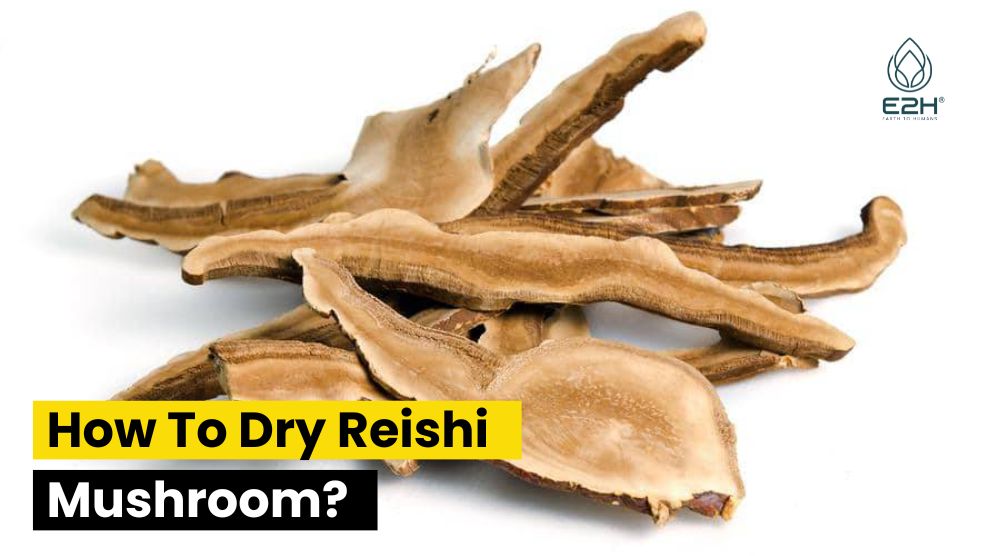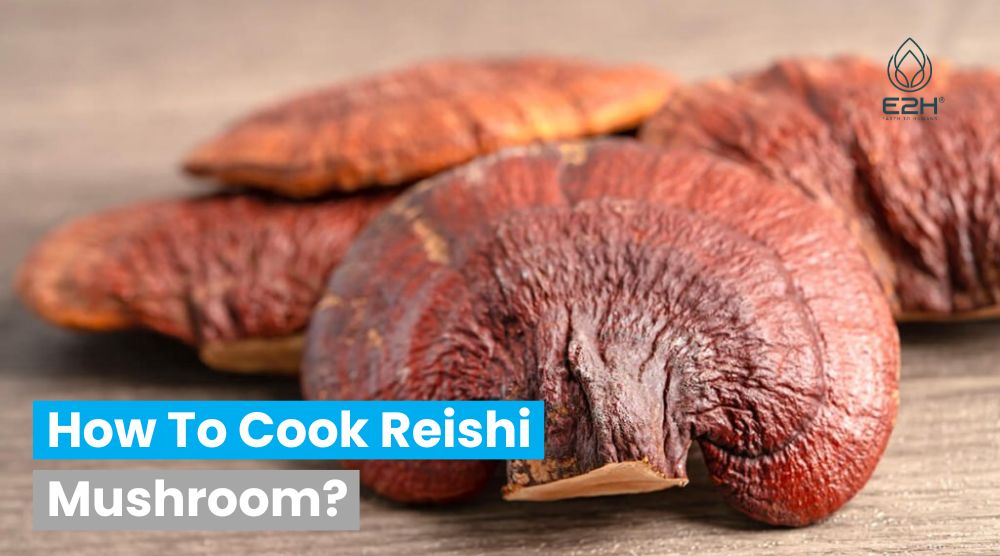When To Take Reishi Mushrooms: Take Reishi mushrooms in the morning for immune support and stress relief. To learn more about the benefits, dosage, and precautions, keep reading.
Discover how this ancient fungus can enhance your well-being and add a natural boost to your daily routine.
When To Take Reishi Mushrooms: Explained
when to take them is crucial for optimizing their potential advantages:
- General Timing: Ideally, consume Reishi mushrooms daily. The morning is often recommended due to potential energy-boosting effects, while evenings suit those seeking relaxation. Consistency is key for long-term benefits. Whether in supplement form, as a tea, or added to recipes, find a time that aligns with your daily habits.
- Before Bed for Sleep Support: Taking Reishi before bedtime is popular for its potential to promote relaxation and improve sleep quality. Its adaptogenic properties may help mitigate stress, making it a suitable addition to a nighttime routine. Consider Reishi tea or supplements as a calming prelude to sleep.
- With or Without Food: Reishi mushrooms can be taken with or without food. Consuming them on an empty stomach may enhance absorption, but pairing with a small meal can aid digestion. Experiment to find what suits you best, considering individual preferences and digestive sensitivities.
- In Stressful Situations: During periods of heightened stress, incorporating Reishi can be beneficial. Its adaptogenic properties may help the body adapt to stressors. While not a substitute for professional guidance, it may complement stress management strategies.
- For Immune Support: Regular intake of Reishi is associated with immune system support. Given its potential in enhancing immune function, taking it consistently can contribute to overall health. Consider incorporating it into your routine during flu seasons or when immune support is a priority.
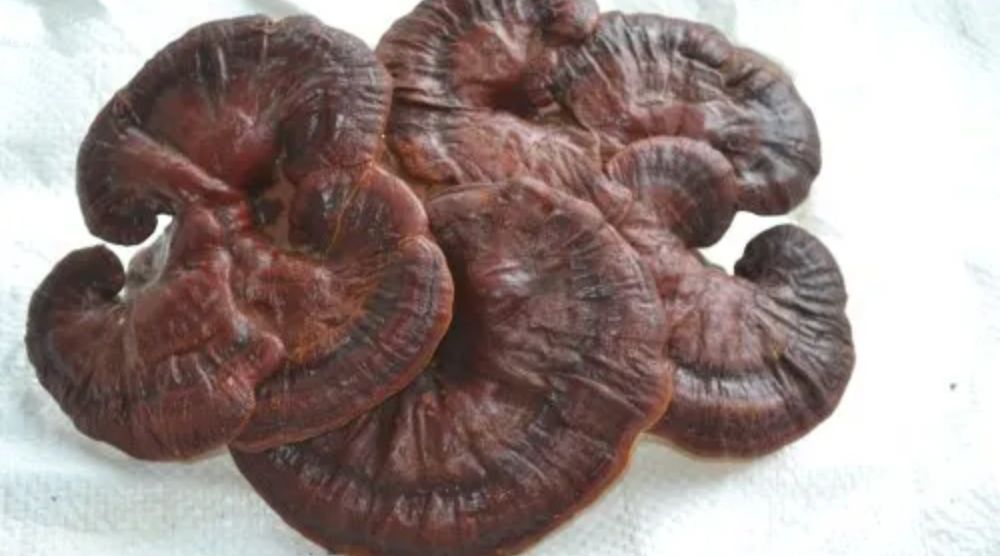
What is the optimal dosage of reishi mushroom supplements?
| Purpose | Optimal Dosage Range |
|---|---|
| General Well-being | 500 mg to 2000 mg per day |
| Sleep Support | 1000 mg to 2000 mg before bed |
| Stress Management | 1000 mg to 2000 mg per day |
| Immune Support | 1000 mg to 2000 mg per day |
| Chronic Conditions | Consult healthcare professional |
How often should I take reishi mushrooms?
To maximize the benefits of reishi mushrooms, taking them consistently is crucial. For general well-being, a daily intake of 500 mg to 2000 mg is recommended. If focusing on specific outcomes, such specific health benefits such as sleep support or stress management, a daily dosage before bedtime or evenly distributed throughout the day may be beneficial.
Individuals seeking immune support or managing chronic conditions may also opt for daily intake, ranging from 1000 mg to 2000 mg. It’s essential to establish a routine aligned with personal preferences, and always consult with a healthcare professional for personalized advice, especially when addressing specific health concerns.
What are the benefits of taking reishi mushrooms?
- Immune System Support: Reishi mushrooms contain compounds that may enhance the activity of white blood cells, supporting the immune system’s ability to defend against infections and illnesses.
- Adaptogenic Properties: Recognized as adaptogens, reishi mushrooms may assist the body in adapting to stressors, potentially reducing the negative impact of stress on physical and mental well-being.
- Improved Sleep Quality: The calming effects of reishi mushrooms may contribute to better sleep quality, making them a choice for individuals seeking natural sleep support.
- Antioxidant Effects: Abundant in antioxidants, reishi mushrooms help combat oxidative stress, potentially reducing inflammation and promoting overall health.
- Potential Anti-Cancer Properties: Some studies suggest that reishi mushrooms may possess compounds with anti-cancer properties, although further research is needed to establish definitive conclusions.
- Liver Health: Reishi mushrooms are believed to support liver health by promoting detoxification processes, potentially aiding in the removal of harmful substances from the body.
- Cardiovascular Health: Compounds found in reishi mushrooms may contribute to cardiovascular health by helping regulate blood pressure and cholesterol levels.
- Anti-Inflammatory Effects: The anti-inflammatory properties of reishi mushrooms may benefit individuals dealing with inflammatory conditions, contributing to reduced inflammation in the body.
- Respiratory Health: Traditionally used to support respiratory health, reishi mushrooms may help alleviate symptoms of respiratory conditions and promote lung function.
- Enhanced Energy and Vitality: Reishi mushrooms, when taken regularly, may boost energy levels and overall vitality, contributing to a sense of well-being.
What are the side effects of taking reishi mushrooms?
While reishi mushrooms are generally considered safe for most people, it’s crucial to be aware of potential side effects. Some individuals may experience mild digestive issues, such as upset stomach or diarrhea.
Additionally, reishi mushrooms may interact with certain medications, affecting their effectiveness. Allergic reactions are rare but possible. It’s recommended to start with a lower dosage and monitor your body’s response.
If you have underlying health conditions or are taking medications, consulting with a healthcare professional before incorporating reishi mushrooms is advisable to ensure safety and avoid potential complications.
What to avoid when taking Reishi?
When taking Reishi, it’s essential to be mindful of certain considerations to ensure its safe and effective use. First, avoid exceeding recommended dosages, as high amounts may lead to adverse reactions. Additionally, individuals with known allergies to mushrooms should steer clear of consuming Reishi.
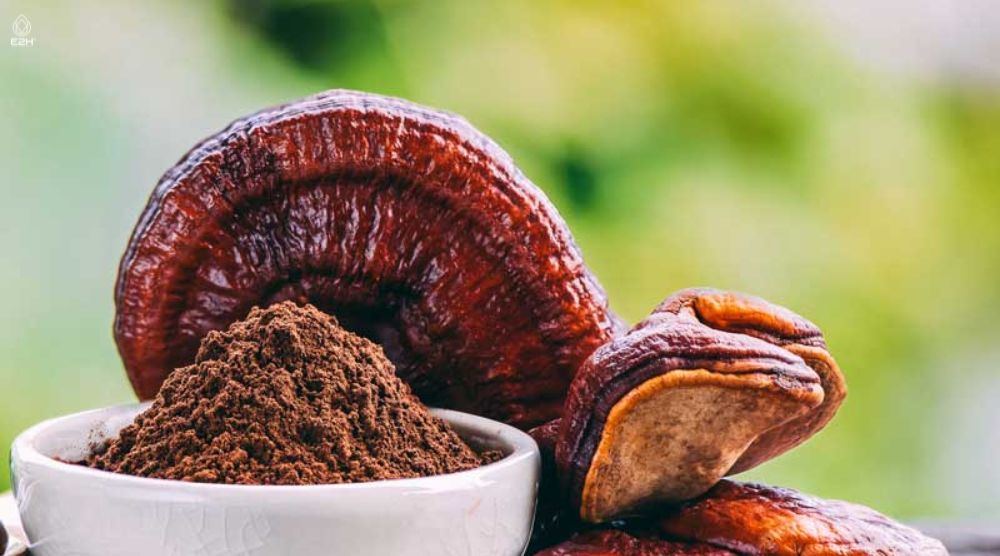
Since Reishi might have blood-thinning properties, it’s advisable to avoid it before surgeries to prevent potential complications. Combining Reishi with certain medications, especially those affecting blood clotting or the immune system, should be done under the guidance of a healthcare professional to prevent interactions.
Lastly, pregnant or breastfeeding individuals should consult their healthcare provider before incorporating Reishi into their routine, as the safety of its use in these populations is not well-established.
Best Way to Take Reishi Mushroom extract
The best way to take Reishi mushroom extract depends on individual preferences and health goals. One popular method is through capsules or tablets, providing a convenient and precise dosage. Reishi tea is another option, offering a soothing way to incorporate it into daily routines.
For those who enjoy culinary exploration, adding the Reishi extract powder to smoothies, soups, or other recipes is a creative approach. Regardless of the form chosen, consistency is key to maximize potential benefits. It’s advisable to start with a lower dosage, gradually increasing if needed, and consulting with a healthcare professional, especially if managing specific health conditions or taking medications.
Can I take reishi mushrooms with other supplements or medications?
Yes, you can take reishi mushrooms with other supplements, but caution is advised. Always consult with a healthcare professional before combining reishi with medications or other supplements. Reishi may interact with blood-thinning medications, immune system modulators, or medications metabolized by the liver.
Monitoring for potential interactions and adjusting dosages under professional guidance is crucial. Additionally, it’s important to be aware of individual sensitivities and start with lower doses, gradually increasing while observing any adverse effects. Regular communication with healthcare providers ensures a safe and effective integration of reishi mushrooms into your supplement regimen.
How long does it take for reishi mushrooms to work?
The time it takes for reishi mushrooms to exhibit noticeable effects can vary among individuals. While some may experience benefits within a 2-3 weeks of daily intake, others may require several weeks or even months of consistent use. Patience is key, and the cumulative effects of reishi on the immune system, sleep quality, and overall well-being may become more apparent over time.
Can I take reishi mushrooms on an empty stomach?
Taking reishi mushrooms on an empty stomach is generally acceptable. In fact, doing so may enhance absorption, as there are no competing substances during digestion. However, individual preferences and digestive sensitivities should be considered. Starting with a lower dosage and gradually increasing can help assess tolerance and optimize benefits, whether taken on an empty stomach or with a small meal.
Can I take reishi mushrooms with alcohol?
Combining reishi mushrooms with alcohol is generally considered safe in moderation. However, excessive alcohol intake may diminish the potential benefits of the reishi mushroom tea and may exacerbate its mild sedative effects. It’s advisable to consume both substances in moderation and be aware of individual responses.
Can I take reishi mushrooms while pregnant or breastfeeding?
For pregnant or breastfeeding individuals, it’s recommended to consult with a doctor or a healthcare professional before taking reishi mushrooms. While there’s no conclusive evidence of harm, the limited research on reishi during pregnancy or lactation suggests exercising caution. Individual health circumstances and the potential impact on the developing fetus or infant should be carefully considered under professional guidance.
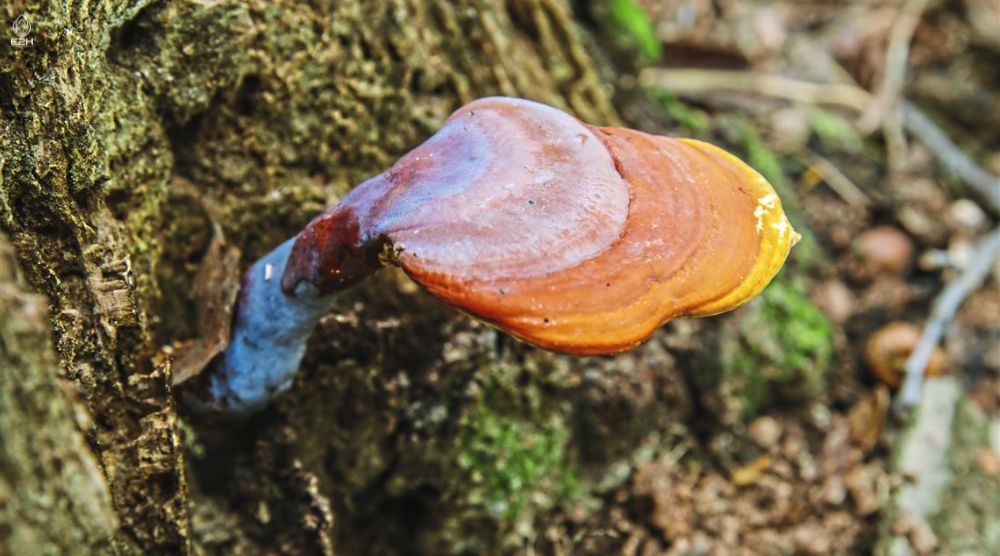
Can I take reishi mushrooms if I have a medical condition?
If you have a medical condition, it’s crucial to consult with a healthcare professional before taking reishi mushrooms. While generally considered safe, reishi may interact with medications or exacerbate certain health conditions.
Individuals with bleeding disorders, low blood pressure, or autoimmune diseases should exercise caution. Reishi’s potential immune-boosting effects may be contraindicated for those with overactive immune responses. Professional guidance ensures a thorough evaluation of your health status, minimizing potential risks, and optimizing the safe integration of reishi medicinal mushrooms, into your health regimen.
FAQs
When is the best time to take reishi mushroom supplements?
Take reishi supplements in the morning for potential energy boost or in the evening for relaxation and sleep support.
Is it better to take reishi mushrooms with or without food?
Reishi can be taken with or without food. Experiment to find what suits your preference and digestive comfort.
Can I take reishi mushroom with other supplements?
Yes, but consult a healthcare professional to ensure safe interactions, especially if you’re on medications or have health concerns.
Should I take reishi mushrooms every day?
For optimal benefits, yes. Consistent daily intake supports the cumulative effects on immune health and overall well-being.
Can I take reishi mushrooms before bedtime?
Yes, taking reishi before bedtime may promote relaxation and improve sleep quality, contributing to a restful night’s sleep.
Conclusion
The optimal time to take reishi mushrooms depends on personal goals. Whether it’s for an energy boost in the morning or relaxation before bedtime, consistency is key. Experiment with timing, consider individual preferences, and consult healthcare professionals when needed. Embrace the potential benefits of consuming reishi mushrooms as part of your daily routine, promoting overall well-being. Remember, gradual adjustments and attentiveness to your body’s response pave the way for a balanced and health-conscious lifestyle.
